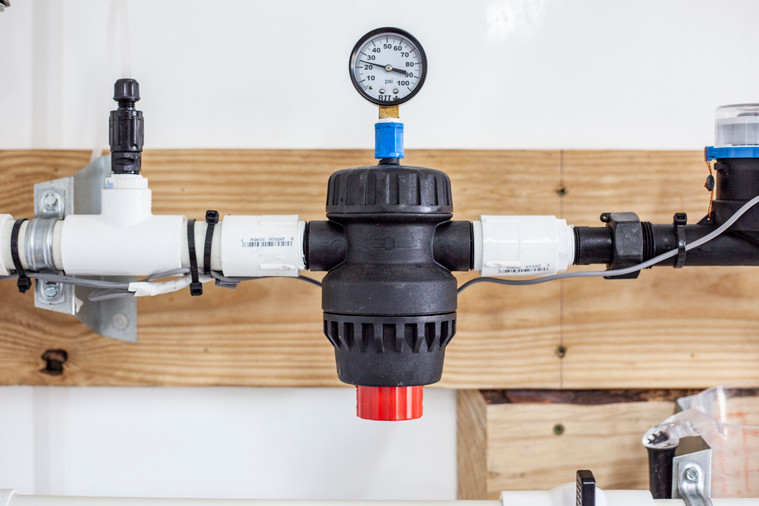Summer Hydration and Cooling Tips for Poultry & Livestock
Posted by Farmer Boy on Aug 11, 2025
Hydration and Cooling Solutions for Your Livestock in the Summer
Every season presents unique challenges for farmers, and summer is no exception. During these warmer months, ensuring proper hydration for your animals can be more complex.
Fortunately, modern technology has made managing summer livestock hydration much easier. From automated watering systems to advanced water quality sensors, you and your staff now have plenty of options to help keep your animals cool and healthy.
Livestock Hydration Challenges Farmers Face during the Summer
Summer heat can significantly impact farm production if animal comfort isn't managed effectively. The most prominent challenges during these months include:
- Dehydration - Not enough water or waterers with poor flow rates can cause animals to dehydrate.
- Heat stress - Animals can experience significant stress when unable to regulate their body temperature in hot or humid conditions.
- Increased labor - : Without proper automation, your team may spend excessive time manually refilling waterers and continuously monitoring livestock for signs of distress.
- Water quality - More water intake from animals can also lead to contamination in your water supply.
Hydration Solutions for the Heat and Animal Stress
Not every animal in your flock has the same heat tolerance and hydration requirements. It’s good to have a plan for your livestock when summer comes along so that you measure their water intake and heat tolerance accordingly.
Poultry
Chickens are very sensitive to heat and can affect their egg production. Solutions to keep them comfortable include:
- Evaporative cooling cells: Helps maintain consistent climate control and is specially treated for enhanced durability and performance throughout seasonal changes.
- Fogging systems: Helps absorb heat to reduce stress from the weather.
- Tunnel fans: Provides efficient air circulation to large spaces fast, providing a comfortable environment for your poultry.
Swine
Pigs do not have sweat glands, so they’re vulnerable to heat stress which can lead to slower growth. The best ways to keep them hydrated and cool are:
- Slatted flooring - Slatted floors are cooler than solid flooring, as they don’t retain body heat like traditional flooring. Slatted floors also incorporate good ventilation.
- High airflow fans: Powerful fans that vary in speed designed to provide air flow to keep your swine at a comfortable temperature.
- Misting systems: Misting systems produce quick evaporation to cool down swine and remove excess heat.
Cattle
Cattle’s size makes their body temperature naturally warmer, so it’s important to include cooling techniques and items to your farm to keep them cool.
- HVLS fans: High-volume, low-speed fans help reduce heat and promote natural cooling with evaporation.
- Shaded cloth: A durable solution that provides an ample amount of light and shade, all the while reducing heat build-up.
- Soakers: Typically programmed to run cycles, soakers help keep your cattle cool with automated watering.
Managing Water Quality and Quantity
In order to make sure your water doesn’t go to waste is to make sure that your water supply is always clean. With increased consumption during summer, water is naturally more susceptible to contamination. Unclean water can lead to widespread infections on the farm, resulting in significant damages and losses.
- Identify contamination threats: Always monitor your water supply and look for anything looking out of the ordinary. Common spaces where bacteria can grow are tanks, water lines, standing water.
- Check for water purity and flow - Regularly test for pH, TDS, and bacteria levels; flush your lines between flocks, and monitor water flow daily to make sure the correct amount allocated to each livestock animal is being served.
Automated Solutions for Hydration
Save time on the farm with automated watering systems so that you and your team don’t have to manually manage the water delivery to your flock. Besides saving time eliminating manual labor, here are other pros of why farmers should move to automation.
- Improved sanitation: The automation of water dispensing reduces contamination from open troughs and errors when it comes to manually filling.
- Responses to flock behavior: Animals typically have to trigger the water, so this helps eliminate water waste.
- Consistent water stock: Water is available all hours of the day, even when your team is off the clock or when you’re short staff.
Water Sensors and Measuring
Implementing tools to monitor your water system's performance allows you to accurately track water usage and detect potential issues early, before they escalate. Here are some key technologies that can help you maintain optimal control over your water supply:
- Water level sensors: Ideal for barns with large water tanks and used to monitor levels on the spot.
- Flow meters: Helps measure water and identify drops in usage that may discover leaks or buildup in the water supply.
- Remote monitoring: Connecting to smart devices like your phone, these systems offer continuous oversight of water levels and usage across your operation.
If you’re looking to improve your water flow and practices on the farm, contact our team at 1.800.845.3374 to get started!


